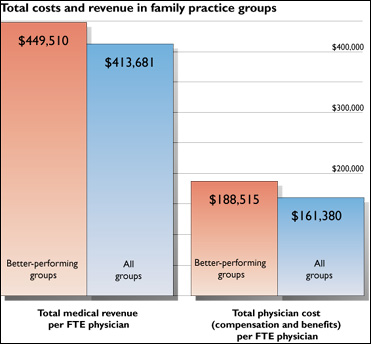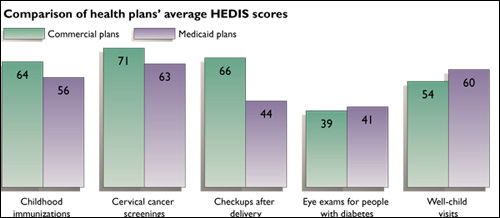
Fam Pract Manag. 2000;7(3):24-25
Informed choice rare in health care
A vast majority of patients are not included in the decision-making process when it comes to their own health care, according to a recent study based on 1,057 audiotaped patient visits with primary care physicians and general surgeons. Ninety-one percent of the more than 3,500 clinical decisions studied were made without the patient receiving enough information to make an informed choice.
In addition, patients were fully involved in 17 percent of “basic” decisions (e.g., laboratory tests) and less than 1 percent of “complex” decisions (e.g., procedures), according to the study, which was published in the Dec. 22/29 issue of the Journal of the American Medical Association.
Researchers recommended that physicians communicate to patients that they play an important role in the decision-making process and clearly explain to patients the diagnosis, proposed treatment and alternatives in order to foster increased patient involvement.
Better-performing groups pay more, generate more
A recent survey from the Medical Group Management Association and the Wharton School of Business at the University of Pennsylvania highlights the characteristics of “better-performing” medical groups.
Although no single trait characterized these groups' success, the survey found, in part, that the best groups had more procedures per physician, lower operating costs per procedure, higher revenue per physician and higher physician compensation and benefits.

Quality doesn't ensure profitability for HMOs
Although the news of HMOs losing money has become commonplace, the recent failures of three top nonprofit HMOs have caused the industry to take notice.
According to a Jan. 27 article from The Associated Press, in 1999 Harvard Pilgrim Health Care lost $150 million, and Penn State Geisinger Health Plan lost $2.3 million. Since 1997 Kaiser Health Plans has lost more than $550 million. All three of the HMOs were rated among the 40 best HMOs in the country by the National Committee for Quality Assurance.
The HMOs have blamed their financial troubles on for-profit rivals that offer lower premiums and pay physicians less, but Harris Berman, chief executive officer of Tufts Health Plan, Waltham, Mass., said, “The real problem is people do not care about quality; the marketplace only cares about price.”
Physicians influenced by pharmaceutical perks
Physician interaction with pharmaceutical representatives is independently associated with changes in physician prescribing patterns, according to a meta-analysis published in the Jan. 19 issue of the Journal of the American Medical Association.
Although most physicians in the study denied that drug representatives had any influence over their behavior, the study's author found that meetings with pharmaceutical representatives correlated with lower prescription of generic drugs and increased physician requests for adding the representatives' products to their hospital formularies.
Attending pharmaceutical-sponsored CME events and accepting funding for travel or lodging for educational symposia also resulted in increased prescription rates of the sponsor's medication.
Quality of care varies widely among Medicaid health plans
Preliminary findings from a study of Medicaid managed care plans suggests that the quality of patient care varies substantially from plan to plan. Looking at the percentage of 2-year-olds with up-to-date immunizations, for example, researchers found results ranging from 10 percent to 86 percent across the 110 Medicaid plans studied.
Compared with commercial health plans' performance on HEDIS (Health Employer Data and Information Set) quality measures, the Medicaid plans fared worse on all but two measures: well-child visits and eye exams for patients with diabetes.

More patients to shop online for health products
U.S. consumers are expected to spend $10 billion on the Internet for health-related products in 2004, up from $200 million in 1999, according to a Jupiter Communications survey of 1,600 online consumers.
According to Jupiter, “This spending surge will be fueled by several factors: a burgeoning health sector with well-financed players spending marketing dollars feverishly, a growing online population that is more comfortable with shopping online and the emergence of women as online buyers.”
Jupiter expects three markets will represent much of the projected $10 billion in online consumer health spending:
Pharmaceutical sales will account for $4.5 billion.
Nutraceuticals, which includes vitamins and other herbal supplements, will generate $1.7 billion.
Personal care and over-the-counter product sales will reach $2.3 billion and $600 million, respectively.
White coats: Doctors deliberate hemlines
“Long coats are more comfortable, they're more slimming and they command more respect,” argued internal medicine residents at Duke University Medical Center who have successfully campaigned to end a three-decade-old department policy that prohibited them from wearing knee-length white coats traditionally reserved for veteran doctors.
According to the Feb. 2 Wall Street Journal, the residents had been required to wear blazer-length white coats, which made them look as though they were “going to serve ice cream,” said one resident. At least half of the 150 residents have already forgone their free blazer-length coats for longer coats purchased at their own expense.
Quote. Endquote.
“This is not Macy's. This is people's health we're talking about.”
California Assemblywoman Dion Aroner in the Feb. 15 Los Angeles Times commenting on a continuing series of emergency department closures by highly profitable hospitals. Aroner's bill to prevent such closures has passed the California Assembly and awaits Senate action.